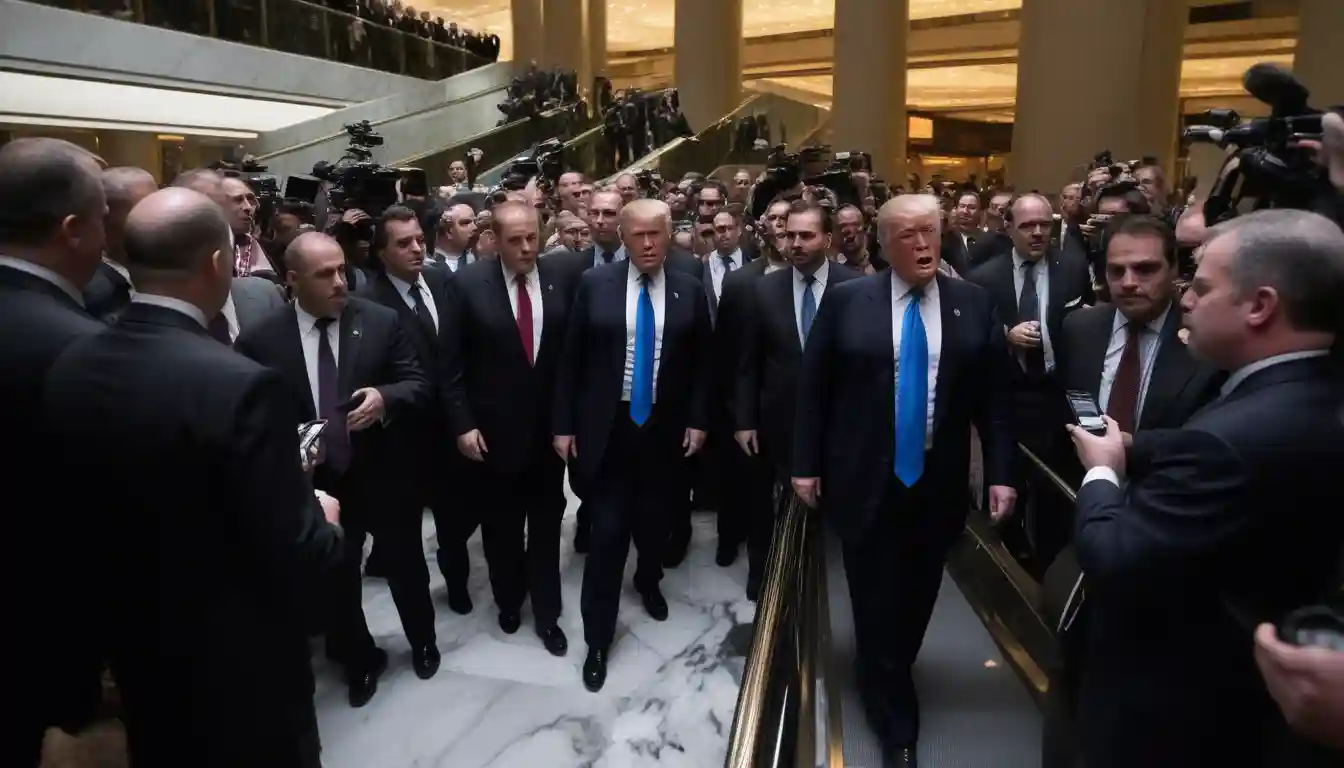
Trump Says UN Sabotaged His Visit After Escalator and Teleprompter Problems
Escalator Breakdown at UN Fuels Clash Over Sabotage Claims
Trump’s speech disrupted by technical hiccups, sparking accusations and finger-pointing
NEW YORK — What should’ve been a routine appearance by Donald Trump at the United Nations General Assembly quickly turned into a diplomatic sideshow. An escalator suddenly froze beneath the president and First Lady Melania Trump, forcing them to climb the rest of the steps on foot. Minutes later, his teleprompter went dark mid-speech, leaving him to improvise before it flickered back to life.
The White House insists this wasn’t bad luck—it was sabotage. UN officials, on the other hand, point squarely to mechanical glitches and human error.
How the Escalator Stopped
The UN wasted little time explaining what went wrong. Their technical logs show a safety sensor tripped, halting the escalator automatically. That sensor exists to prevent clothing or objects from getting caught in the gears. According to a UN spokesperson, the likeliest trigger was a U.S. cameraman stepping backward while filming Trump’s entrance. Several international outlets have echoed this explanation as the most plausible.
As for the teleprompter? UN staff say they don’t even handle that equipment. Each delegation brings its own. In other words, Trump’s team had control of the device when it failed.
White House Pushes Back
Trump didn’t buy it. In a fiery post on Truth Social, he labeled the series of mishaps “triple sabotage at the UN,” adding audio issues in the hall to the list. “This wasn’t a coincidence,” he wrote. “The people that did it should be arrested!”
Press Secretary Karoline Leavitt backed him up, pointing to a London Times report that claimed UN workers once joked about switching off an escalator. The administration is now demanding investigations and even firings. The Secret Service has confirmed it’s looking into the escalator shutdown.
Old Tensions Resurface
This episode touches a nerve that runs much deeper than one bad escalator ride. American frustration with the UN stretches back decades.
Money sits at the heart of the dispute. The United States foots about 22 percent of the UN’s regular budget and a quarter of its peacekeeping bill—far more than any other member. Many Americans see that as paying a premium for an organization where hostile nations still get an equal vote.
Then there’s the matter of bias. Critics often point to the UN’s long history of resolutions condemning Israel while giving less attention to regimes with serious human rights records of their own. To conservative voices, that looks like institutional hostility toward U.S. allies.
The Human Rights Council adds fuel to the fire. Countries like Venezuela, China, and Saudi Arabia have all sat on it at various times, which many Americans consider the height of hypocrisy.
And bureaucracy? That’s another sore spot. From failures in Rwanda and Srebrenica to the cholera outbreak in Haiti, critics argue the UN has proven clumsy and slow even with its massive resources.
For America First advocates, the deeper problem is sovereignty. They see climate agreements, refugee pacts, and arms treaties as shackles on U.S. decision-making. Why, they ask, should American policy bend to a global consensus set by unelected international officials?
What Investigators Are Doing
The Secret Service is combing through security footage and technical data from the escalator. Investigators are interviewing staff and checking whether emergency stops were activated correctly. Meanwhile, UN officials have pledged to cooperate but are standing firmly behind their technical findings.
What Happens Next
The UN may tighten its procedures for high-profile visits—more equipment checks before leaders arrive, clearer rules for where media crews can stand, and closer coordination with delegations’ own teams.
If the investigation confirms the UN’s version of events, that may calm things down. But should evidence point to deliberate interference, the fallout could be explosive.
Escalator experts note that modern systems are designed with multiple safety cutoffs, and the UN’s explanation fits that design. Still, the final word will only come once the security review is complete.
For now, this bizarre mix of mechanical failure, political suspicion, and old grievances has once again spotlighted the uneasy relationship between Washington and the UN. As one official put it, the organization remains committed to welcoming every nation—but in this case, it’ll also be checking the machinery twice.